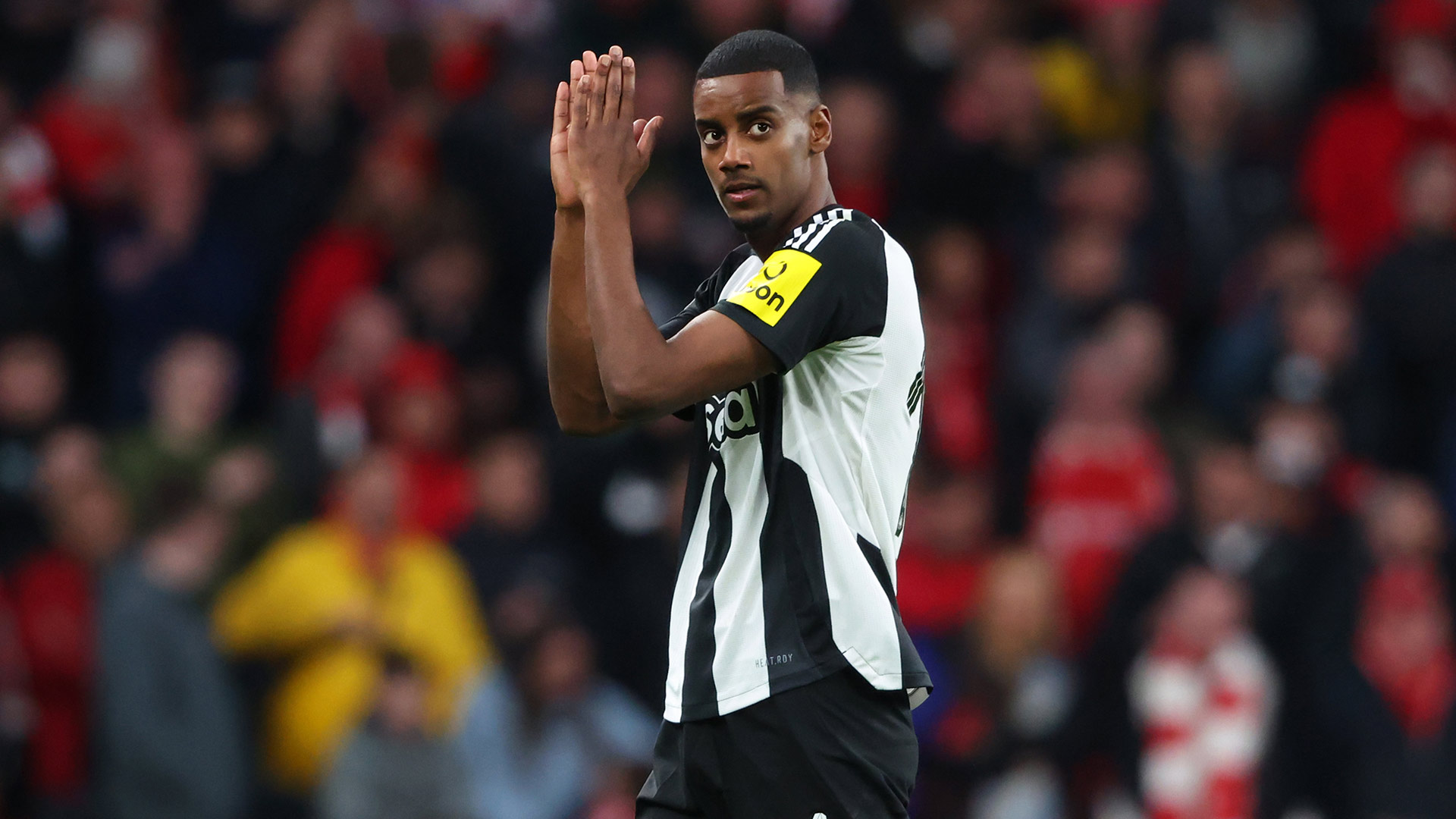
Wrexham Set For Blockbuster FA Cup Tie Against 8-time Champion Chelsea
Entities mentioned:
- Wrexham: Ambition, Competitive spirit, Pride
- Chelsea: Competitive spirit, Legacy, Pride
- Arsenal: Ambition, Determination, Legacy
- Manchester City: Competitive spirit, Ambition, Revenge
- Liverpool: Competitive spirit, Pride, Legacy
Article Assessment:
Credibility Score: 85/100
Bias Rating: 50/100 (Center)
Sentiment Score: 70/100
Authoritarianism Risk: 15/100 (Strongly Democratic)
Bias Analysis:
The article presents a factual account of the FA Cup draw without showing favoritism to any team. The reporting focuses on the matchups and historical context without editorializing.
Key metric: Sports Engagement and Tourism
Let me tell you something - this FA Cup draw is ELECTRIC! We've got a real David vs Goliath matchup with Wrexham taking on the Chelsea juggernaut. Folks, this is the kind of cinderella story that makes the beautiful game so thrilling! Arsenal's quadruple dream is still alive, but they'll need to bring their A-game against the underdogs from Mansfield. And don't even get me started on Manchester City - they're looking for redemption after two straight final losses. This is their chance to prove they've still got that championship DNA! Liverpool's heading into the Wolves' den, and Leeds is gearing up for a showdown with their coach's old squad. I'm telling you right now, we're in for some fourth-quarter heroics and game-changing plays. These teams are stepping up to the plate with everything on the line - it's do or die time in the FA Cup!

Arsenal Are Wembley-Bound! Carabao Cup Final Booked After Ousting Chelsea
Entities mentioned:
- Arsenal: Ambition, Competitive spirit, Pride
- Chelsea: Determination, Competitive spirit, Revenge
- Mikel Arteta: Professional pride, Ambition, Control
Article Assessment:
Credibility Score: 85/100
Bias Rating: 50/100 (Center)
Sentiment Score: 65/100
Authoritarianism Risk: 20/100 (Strongly Democratic)
Bias Analysis:
The article presents a balanced view of the match, giving credit to Arsenal's strategy while acknowledging Chelsea's efforts. It includes player ratings for Arsenal, providing objective assessments of individual performances.
Key metric: Premier League Team Performance
Let me tell you something - this game was a DEFENSIVE MASTERCLASS by Arsenal! They stepped up to the plate with a championship mentality, playing a strategic game of keep-away that would make any coach proud. Chelsea tried to mount a comeback, but Arsenal's defense was as impenetrable as a steel curtain! The Gunners showed they have the winning formula, executing their game plan to perfection and leaving Chelsea fumbling in the fourth quarter. This is the kind of clutch performance that separates the contenders from the pretenders, folks! Arsenal has punched their ticket to the big dance at Wembley, and they're showing they have what it takes to go all the way!

Real Madrid? PSG? Argentina's Enzo Fernandez Eyes New Chelsea Deal Over Move
Entities mentioned:
- Enzo Fernandez: Ambition, Professional pride, Recognition
- Chelsea: Competitive spirit, Ambition, Loyalty
- Liam Rosenior: Determination, Competitive spirit, Control
- Real Madrid: Ambition, Competitive spirit, Power
- Paris Saint-Germain: Ambition, Competitive spirit, Power
Article Assessment:
Credibility Score: 75/100
Bias Rating: 50/100 (Center)
Sentiment Score: 60/100
Authoritarianism Risk: 20/100 (Strongly Democratic)
Bias Analysis:
The article presents multiple perspectives, including those of the player, club, and potential suitors. It balances speculation with direct quotes and statistical information, maintaining a relatively neutral stance.
Key metric: Premier League Standings
Let me tell you something, folks - this transfer saga is heating up like a fourth-quarter comeback! Enzo Fernandez is the MVP that every team wants on their roster, but Chelsea's not about to fumble this play. They're in a high-stakes game of keep-away with soccer giants Real Madrid and PSG, and Fernandez is the prized football they're all fighting for. But here's the kicker - Fernandez isn't just running out the clock on his contract. No sir, he's stepping up to the plate, demanding a new deal that matches his all-star performance. This is CHAMPIONSHIP MENTALITY, folks! Chelsea's new coach Rosenior is playing defense, trying to keep his star player from being poached. It's a classic example of a coach protecting his playmaker. But make no mistake, Real Madrid and PSG are running interference, looking for any opening to swoop in and steal this game-changer. This is the kind of high-pressure situation that separates the contenders from the pretenders. Fernandez has been lighting up the scoreboard, leading his team in assists and successful passes. He's not just a player, he's the BACKBONE of Chelsea's offense. As we head into the final stretch of the season, all eyes will be on this transfer tug-of-war. Will Chelsea lock down their star player, or will we see a blockbuster trade that shakes up the entire league? I'm telling you right now, this is the kind of drama that makes soccer the beautiful game!

Soccer's Most Expensive Transfers: Isak Joins Neymar, Mbappé in Top 5
Entities mentioned:
- Liverpool: Ambition, Competitive spirit, Pride
- Alexander Isak: Ambition, Recognition, Professional pride
- Florian Wirtz: Ambition, Recognition, Professional pride
- Neymar: Ambition, Recognition, Legacy
- Kylian Mbappe: Ambition, Recognition, Legacy
- Philippe Coutinho: Ambition, Recognition, Professional pride
- Chelsea: Ambition, Competitive spirit, Pride
- Barcelona: Ambition, Competitive spirit, Pride
Article Assessment:
Credibility Score: 75/100
Bias Rating: 45/100 (Center)
Sentiment Score: 55/100
Authoritarianism Risk: 20/100 (Strongly Democratic)
Bias Analysis:
The article presents a balanced view of transfer successes and failures. It doesn't show clear favoritism towards any club or player, providing factual information about transfers and subsequent performances.
Key metric: Economic Impact of Sports Industry
As a social scientist, I analyze that this article highlights the significant economic impact of the soccer industry, particularly through high-value player transfers. The massive sums involved in these transfers ($570 million spent by Liverpool alone) demonstrate the immense financial power of top-tier soccer clubs and leagues. This level of spending affects local and global economies, influencing job creation, tourism, and media rights. The trend of escalating transfer fees also reflects broader economic patterns of inflation and increased commercialization in sports. However, the mixed success of some high-profile transfers (e.g., Coutinho, Griezmann) raises questions about the efficiency of this spending and its long-term sustainability. The global nature of these transfers, involving clubs and players from various countries, also underscores soccer's role in international economic flows and cultural exchanges.

Liverpool's Deal for Alexander Isak to Reportedly Shatter Premier League Mark
Entities mentioned:
- Liverpool: Competitive spirit, Ambition, Recognition
- Alexander Isak: Ambition, Recognition, Professional pride
- Newcastle United: Greed, Competitive spirit, Self-preservation
- Premier League: Recognition, Competitive spirit, Influence
- Chelsea: Competitive spirit, Ambition, Recognition
- Enzo Fernandez: Ambition, Recognition, Professional pride
- Florian Wirtz: Ambition, Recognition, Professional pride
- Bayer Leverkusen: Greed, Competitive spirit, Self-preservation
- Jeremie Frimpong: Ambition, Recognition, Professional pride
- Hugo Ekitike: Ambition, Recognition, Professional pride
- Mohamed Salah: Competitive spirit, Professional pride, Recognition
Article Assessment:
Credibility Score: 75/100
Bias Rating: 45/100 (Center)
Sentiment Score: 65/100
Authoritarianism Risk: 20/100 (Strongly Democratic)
Bias Analysis:
The article presents factual information from reputable sources like BBC and The Athletic. It maintains a neutral tone, focusing on reporting transfer details without favoring any particular club or player.
Key metric: Economic Impact of Sports Industry
As a social scientist, I analyze that this transfer deal significantly impacts the economic landscape of professional soccer, particularly in the Premier League. The record-breaking fee for Alexander Isak demonstrates the escalating financial power of top clubs and the increasing market value of elite players. This trend could lead to wider economic implications, including inflation in player wages, transfer fees, and potentially ticket prices. It also highlights the growing financial disparity between top-tier clubs and smaller teams, which could affect competitive balance in the league. The massive spending by Liverpool, totaling over £400 million, indicates a shift in the club's financial strategy and could influence other clubs to increase their spending to remain competitive. This 'arms race' in player acquisition could have long-term effects on the financial sustainability of clubs and the overall economic structure of the sport.